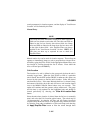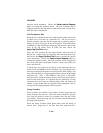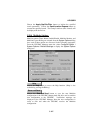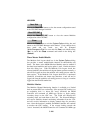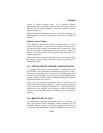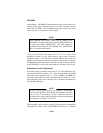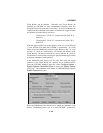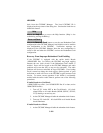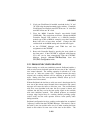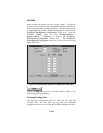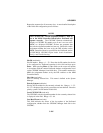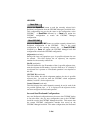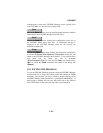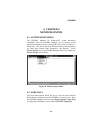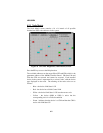LBI-39224
3-203
2. If only one Clock Board is installed, turn both clocks ("A" and
"B") ON using the panel-mounted toggle switches. If multiple
Clock Boards are installed, turn OFF all but one "A" clock and
turn OFF all but one "B" clock.
3. Clear the MOM Controller Board's non-volatile RAM
(NOVRAM). This can be done as follows: Change the MOM
Controller Board's DIP switches to a different interface
module type (CIM or MIM for example), reset the Controller
Board and wait at least three seconds. Change the DIP
switches back to the MOM setting and reset the board again.
4. At the CEC/IMC Manager send TDM bus and slot
assignments to the CEC/IMC.
5. Reset each Controller Board by pressing the reset switch on
the front panel. If the CEC/IMC is equipped with firmware
V5.0, this can be done automatically from the CEC/IMC
Manager through Activate TDM Bus Slots from the
CEC/IMC Configuration menu.
3.23 PROSOUND CONFIGURATION
When roaming on a wide area (multisite) network, ProSound enables a
radio to select a new site based upon the bit error rate of the "adjacent"
sites' control channels. The roaming operation is referred to as "wide
area scan" or "wide area system scan." ProSound ensures the newly
selected site's working channels will be sufficient to provide quality
audio. During wide area scan operations, EDACS allows up to six
adjacent sites to be scanned.
Without ProSound, the decision to wide area scan is based upon the bit
error rate of the current control channel; three consecutive bad control
messages will cause the radio to wide area scan. The non-ProSound
wide area scan algorithm locks onto the first system it detects and
validates, but this may not be the best quality signal in the available
wide area (multisite) network. This method produces an extended
coverage range beyond that of a working channel providing quality
receive audio, and the radio operator receives lower quality audio
during transition.
ProSound configuration involves sending each trunked site an updated
"adjacency" matrix from the CEC/IMC Manager. This matrix is sent to
the radio by the site and the radio uses it to make roaming decisions
based on the relative bit error rates of the sites in the matrix. The



